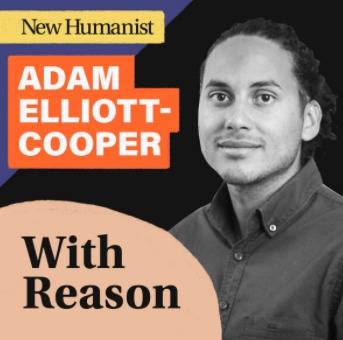This article is a preview from the Winter 2016 edition of New Humanist. You can find out more and subscribe here.
By 1993, Bob Dylan was a man out of time. Though still in his fifties, the singer of “Forever Young” had taken to wearing a funereal top hat, ambled with a cane, and had affected a thin, often cruel-sounding nasality in his vocal performances that made his earlier rasp sound warm and childlike in comparison. And he brought bad news. “Modern times”, he wrote in the liner notes of his latest album, were “the New Dark Ages”, in which “technology” threatened “to wipe out the truth”.
That year’s album was called World Gone Wrong. In the decades that followed – with wars in the Middle East and northern Africa, the worst global economic crisis since the Great Depression and the polarisation of politics across the West – the world seems only to have gone wronger. The New Dark Ages? That was no joke.
So it was perhaps in the spirit of “He that brings the news made not the match” that the Nobel Committee awarded Dylan its literature prize on 13 October. The unexpected choice was met by a few cheers and a predictable, if rather bogus, chorus of disapproval. The historian Tim Stanley groaned that whereas past winners such as Yeats, Gide and Solzhenitsyn were “suns around which we orbit”, Dylan was a “dim star strumming a guitar”. Irvine Welsh described the decision as one that had been “wrenched from the rancid prostates of senile, gibbering hippies”.
All prizes provoke what-aboutery and that’s part of their fun. If you threw a harmonica at Twitter in the week of the announcement, you would have hit a post moaning that “actual” American writers – Philip Roth, say – were still waiting for acknowledgement from the committee. Yet a more interesting quibble could have addressed the Nobel Prize’s stipulation that winners must produce work that is outstanding “in an ideal direction”. For years, Dylan’s music hasn’t strayed too far from that weary attitude of 1993: we’re in a world gone wrong, the New Dark Ages. And if it’s not dark yet, it’s getting there.
When he won the Best Original Song Oscar in 2001 for “Things Have Changed”, Dylan thanked the Academy for being “bold enough” to honour a lyric “that doesn’t pussyfoot around, nor turn a blind eye to human nature”. The human nature he describes is all postlapsarian irrationality, a fight for survival and escape. “People are crazy and times are strange,” he sings. “All the truth in the world adds up to one big lie.”
His earlier songs, such as “Hurricane” and “Masters of War”, may seem idealistic in their intent but they, too, refuse to pussyfoot around man’s craziness, or the strangeness of the times. Most have a pessimistic view of justice, shadowing the optimistic bravado that made their author a reluctant voice of a generation. Only death can stop those masters of war, and the answer to whatever problem you have, my friend, is blowin’ in the wind, way up there – and who can reach so high?
Dylan eventually dismissed some of his more overtly politicised work as “finger-pointing” songs that lacked dimension, and he was largely right to do so. If they continue to have power, it is because of their moments of sensory excess, in which what they make you feel usurps what they say. That’s the wonder of the pop song: a form that can transfigure “Wop bop a loo bop a lop bam boom!” into the most articulate expression of teenage exuberance, that can make “The Lonesome Death of Hattie Carroll” into Shakespearean drama, and can turn Dylan’s soporific “Visions of Johanna” into real visions, the kind that Blake would have understood.
Taken this way, perhaps the negativity of much of Dylan’s lyrics doesn’t matter. Despite the stated doom and gloom, idealism resides in the way his songs are put together and then put across in his performance. Over the years, disappointed fans have pointed out lines – even entire melodies – of his songs that were stolen from those of others. (“Blowin’ in the Wind” mops its tune from a slave song called “No More Auction Block”, for example.) But this folk method of cut-and-paste has the effect of reminding us about the commonality of human experience through the ages.
And while Dylan’s words sometimes may not make much literal sense, or even much poetic sense, they always make a certain kind of rock ’n’ roll sense – which by its nature is ecstatic. Maybe that’s the idealism that the Nobel Committee heard in all his grumbling about false-hearted men of peace, the politics of sin and men in long black coats.

